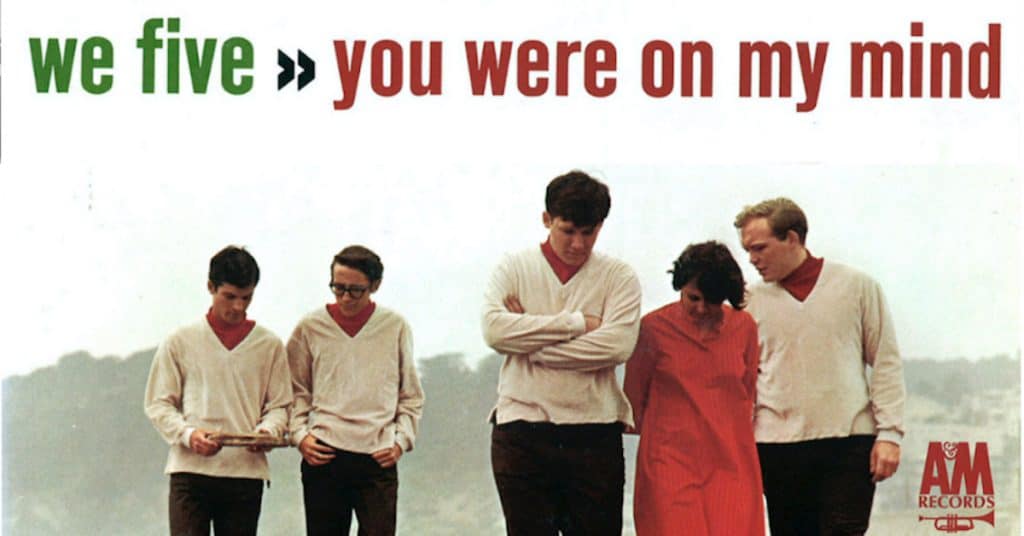
This week in 1965, amid the burgeoning folk revival and the first tentative stirrings of folk-rock, a band named The We Five emerged from San Francisco to claim a sudden and fleeting place in the pop landscape. Their single, “You Were On My Mind,” hit number one on the WKNR Music Guide. It would become both a defining anthem and an enduring enigma: a one-hit wonder whose resonance outlasted its creators’ brief moment in the spotlight.
The song itself was not originally theirs. It was written four years earlier by Sylvia Fricker, half of the Canadian duo Ian & Sylvia, in a modest hotel room in Greenwich Village, where the bathroom , ironically the only roach-free refuge , served as the incubator for what would become a quietly anguished meditation on memory and loss. Fricker’s lyrics, simple, spare, and suffused with a plaintive longing, caught the aching aftertaste of a heart half-broken, half-hopeful. Yet it was We Five’s interpretation that transformed the song into something altogether new: brighter, sharper, tinged with an electric edge that heralded a change in the musical winds.
We Five’s rendition introduced drums and electric guitar into a folk idiom that until then had been largely acoustic and contemplative. Their arrangement, helmed by Michael Stewart, who was at once band leader and architect, carried the song forward with an urgency and polish that contrasted with its plaintive core.
But it was Beverly Bivens, the band’s lead vocalist, who truly made the song unforgettable. Her voice, capable of swooping from a warm low tenor to an almost ethereal soprano, imbued the song with a depth of feeling that was both theatrical and intimate. The line, “When I woke up this morning, you were on my mind,” was delivered with such clarity and vulnerability that listeners found themselves caught in its orbit, suspended between heartbreak and hope.
Yet, like many fleeting sparks of the 1960s music scene, We Five’s ascent was brief. The cultural milieu was shifting rapidly: the British Invasion was in full swing, psychedelia was just on the horizon, and audiences’ tastes were evolving with dizzying speed. Subsequent releases by the band failed to capture the same alchemy. Internal changes and the departure of Bivens in 1966 fractured the group’s cohesion. Though the band continued with new personnel, the original magic never quite returned, and by the late 1960s, We Five quietly dissolved.
But “You Were On My Mind” persists, not simply as a nostalgic relic, but as a document of a transitional moment, a song that straddled folk’s earnest introspection and rock’s burgeoning electricity. It embodies the restless creativity of the era and stands as a reminder of how singular moments of artistic synthesis can capture something timeless, even if the artists themselves drift out of view.
Listening today, the song still carries a bittersweet weight: the ache of a love remembered, the clarity of youthful yearning, and the bittersweet knowledge that some moments are destined to be singular, shining bright before fading into memory. In that glow, We Five’s brief chapter in music history remains illuminated , a testament to the beauty and poignancy of transience itself.

